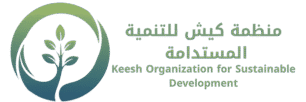What Is Sustainable Development? Concept, Dimensions, and Importance in Iraq: The Vision of KEESH Organization for Sustainable Development
Introduction
The term “sustainable development” emerged in response to the environmental, social, and economic challenges facing the world since the late twentieth century. The United Nations defines sustainable development as “development that meets the needs of the present without compromising the ability of future generations to meet their own needs.” This vision forms the foundation of the seventeen Sustainable Development Goals, adopted by countries worldwide in 2015 as a global development framework through 2030. KEESH Organization for Sustainable Development seeks to adopt this concept and apply it locally in Iraq to ensure resource continuity and enhance community well-being.
1. Definition of Sustainable Development
Classical Definition (Brundtland Report, 1987): “Development that meets the needs of the present without compromising the ability of future generations to meet their own needs.” United Nations Framework: The Sustainable Development Goals (SDGs) encompass 17 objectives covering health, education, clean energy, decent work, climate action, and more, while adhering to the principle of “leaving no one behind.”
2. The Three Dimensions of Sustainable Development
Environmental Dimension: Focuses on preserving natural resources (water, air, soil), reducing pollution, and protecting biodiversity to ensure the continuity of ecosystems. Economic Dimension: Aims to achieve sustainable and inclusive economic growth by diversifying income sources, investing in green technologies and local markets, and enhancing resource-use efficiency. Social Dimension: Concerns ensuring justice and equality, providing quality education and healthcare, and empowering vulnerable groups (women, youth, minorities) to play an active role in society.
3. The Importance of Sustainable Development in the Iraqi Context
Economic Diversification: Iraq’s economy relies heavily on oil, making it vulnerable to global price fluctuations. The United Nations Development Programme highlights the need to develop alternative sectors such as agriculture, eco-tourism, and manufacturing to enhance economic stability. Climate Change Mitigation: Iraq faces rising temperatures and declining rainfall, exacerbating water scarcity and threatening food security. Implementing innovative solutions like hydroponic farming and renewable energy is therefore essential. Social Justice: Decent employment and community empowerment help reduce poverty and improve essential services (water, health, education), as highlighted in reports by GICHD and UNDP on the impact of mine clearance and infrastructure rehabilitation in Iraq.
4. The Role of KEESH Organization for Sustainable Development
Conducting Studies and Strategy Development: Funding field research to analyze the status of resources in Iraqi governorates and develop integrated local action plans. Launching Awareness and Training Programs: Organizing workshops and seminars for youth, women, and local leaders to introduce them to sustainable development goals and standards, and to implement best practices. Local and International Partnerships: Collaborating with government entities, UNDP, and other organizations to secure funding and technical support, and launching projects in solar energy, water desalination, and sustainable agriculture under the supervision of KEESH Organization for Sustainable Development. Monitoring and Evaluation: Publishing transparent periodic reports to track environmental, economic, and social performance indicators, supported by field data that demonstrate progress toward achieving development goals.
Conclusion
Sustainable development represents a comprehensive vision for rebuilding Iraq on solid foundations that preserve resources and ensure economic and social justice. Through continuous efforts and coordination between KEESH Organization for Sustainable Development and local and international partners, Iraq can take steady steps toward a prosperous and sustainable future that guarantees the well-being of current and future generations.




